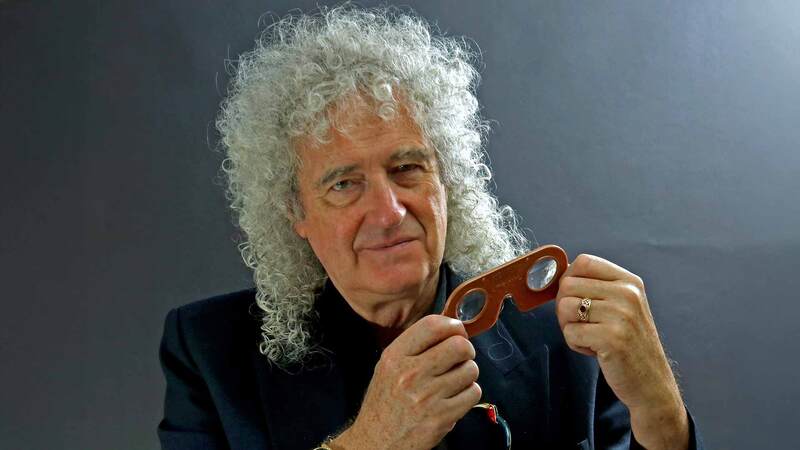You are viewing your 1 free article this month. Login to read more articles.
Writers of colour forced to publicise themselves, Koomson says
Writers of colour are denied a level playing field and often have to publicise books themselves because the industry does not understand how to reach non-white middle-class audiences, novelist Dorothy Koomson has said.
The author, alongside Abir Mukherjee and Dialogue publisher Sharmaine Lovegrove, shared her thoughts in an online discussion about publicity and marketing with Dr Anamik Saha, hosted on Instagram by Words of Colour. The session was held following an eye-opening report by Saha and Dr Sandra van Lente , Rethinking ‘Diversity’ in Publishing, released this week in a partnership between Goldsmiths, University of London, Spread the Word and The Bookseller.
Koomson said black writers were not expected to write commercial fiction which made it difficult to get publicity in the traditional media. Meanwhile, publishers didn't treat outlets like gal-dem equally with outlets like BBC Radio 4 and missed vital chances to create the word of mouth that sells books. That led to many authors having to do a lot of the legwork themselves, for instance by finding groups of readers themselves online and elsewhere.
She said: “One of the ways, with all these wonderful media outlets and groups online is you can engage with them yourself, you don't need money. If you're a writer of colour or black writer you find these people. You have to do it yourself. You can't wait for your publisher to do it for you, your publicist, because if you haven't got a publicist as good as I have then you're going to be sat there waiting for them to come up with a couple of black bloggers or bloggers of colour who are going to be able to understand your book. It's an unfortunate thing. You haven't got the luxury like a lot of white authors have of sitting back and letting someone else do it for you.”
Saha suggested having more people of colour in the industry would have a “huge impact” on this element of the trade, who could see those media outlets as normal rather than niche. But Koomson warned it shouldn't be the task of the one black person in the room to repeatedly point out where the company was going wrong.
She said: “It should be on the whole company to be aware of these things and the things they write, the way they write things, the way they try and sell things, how they see that book and how they see the book going out into the world. They need to be aware of that and they need to take responsibility when they get it wrong rather than just saying 'I can see you're upset, can you just calm down a bit'. They need to take responsibility for getting it wrong and committing to doing better.”
Koomson, who penned an open letter to the industry this month calling for equal treatment for writers of colour, said: “There's loads of us but we don't get shouted about, we don't hear about it because we don't get the publicity. We don't get the support from the bookshops. There's a lot of stuff we don't get and also we don't get the chance to fail. We don't get to write the dud book and then feel like it's OK because the next book's going to be fine, they're going to promote it just as well.”
Mukherjee said the problem of a lack of diversity was multi-dimensional, from the whiteness of agents and publishers to a statistic that 50% of British Asians had never been into a bookshop because they felt intimidated.
Asked if publishers could do more to reach wider audiences, he said: “I wouldn't know how to market a book to an upper-class white person, I just wouldn't because that's not the way my brain is set and, similarly, I can't expect somebody who's never lived our experiences to understand our communities. So that goes to the heart of who you're recruiting.”
He warned the issue needed to be kept “front and centre”. By keep backing the same kind of books because they didn't understand the alternatives, publishers were limiting their reach and ignoring finding new readers.
Mukherjee explained: “You don't grow your market by doing cosy things, especially when your core market is actually getting smaller. If you look at the demographic that publishers have aimed at historically, it is shrinking and also people are buying books in different ways. The market is changing.”
The writer continued: “If you look at the figures, the disposable income of these groups is becoming greater. So why wouldn't you target them, why wouldn't you get people who can go after that business?”
He said even in 2020 Asian writers were being expected to exoticise their lifestyles and focus on things like arranged marriages. He said: “Our communities, we are 99% no more interesting than anybody else's community, we just have better food. The publishing community needs to realise that. We should be able to write really bad sci fi and have the same chances of being published as a white middle-class man. So that's all we're asking for, which is a level playing field.”
The pair agreed there was no right to fail for writers of colour because if one person did, it could close the door on many other writers for years. Mukherjee said: “It's not coming from a point of view of overt racism, it's this subconscious racism that is so pernicious, that's the cause of these things.”
Lovegrove was one of those who signed an open letter by the Black Writers Guild this month with a list of demands for the trade. Saha said one of the recommended actions, ring-fenced money for promotion and marketing of writers of colour, would have a “potentially huge” impact in getting the books out there and read.
The Dialogue founder explained the marketing budget was often very small if the advance was very small. She said: “It means its really difficult for writers to then break out into new spaces, to bigger audiences and to get that traction from lots and lots of different types of readers if the marketing budget isn't there. So that's why we specifically advanced for a ring-fencing of the marketing budget.”
Saha suggested the industry was very opaque, especially to writers from marginalised backgrounds. Lovegrove responded: “We have to remember that knowledge is power and so we really need to fling open the doors, give more people space, have more publishers like myself, have more editors, sales, all of it. I think the problem that we're having right now is the frustration is coming from, not just the numbers, which are appalling, but the fact that people still don't really understand how it works. And if people understood how it works, they wouldn't be asking the question and they would know what to do. Let's just be open, let's just say this is how we do it and then we can work out what we can do better and change.”


















